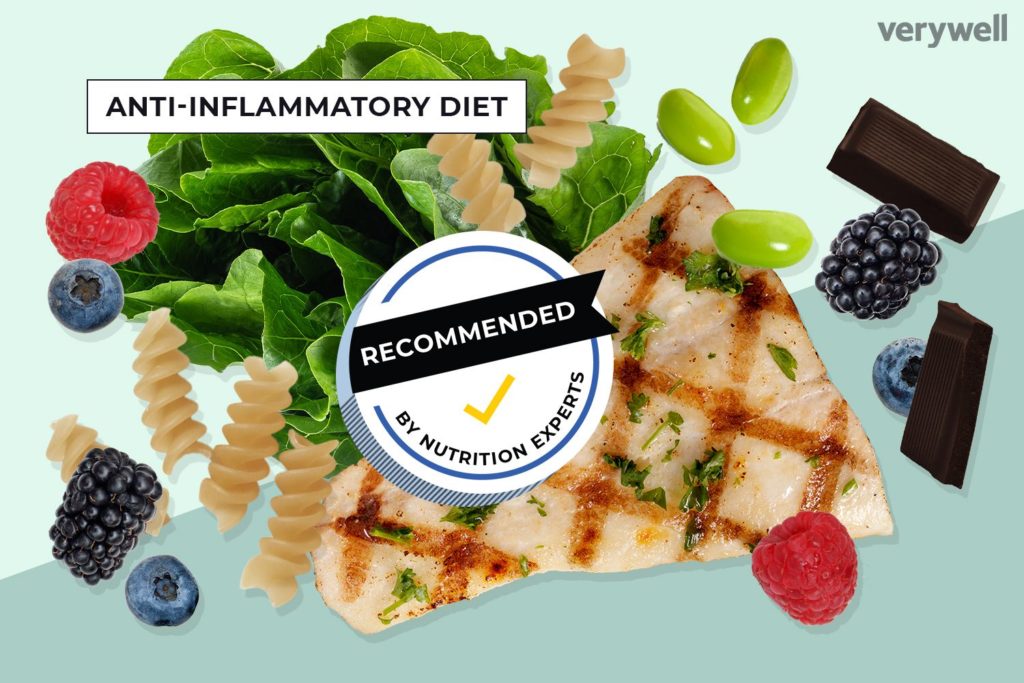Understanding the Anti-Inflammatory “Diet”
Every person’s experience with inflammation is different. While the anti-inflammatory diet follows some general guidelines for what to eat and what not to eat, it is more of a lifestyle than a strict regimen. The Mediterranean and DASH diets are both strong examples of how to eat anti-inflammatory foods, according to Medical News Today. The details of an anti-inflammatory diet will vary depending on the individual’s inflammatory triggers and food sensitivities.
Many people who are struggling with chronic inflammation find it helpful to:
- Eat plenty of vegetables, especially leafy greens.
- Enjoy fresh fruit, like berries and apples. Fruit can have a high sugar concentration, which can increase the inflammatory response in some people, so it’s best to consume them in moderation.
- Focus on whole foods, such as brown rice, oats, nuts, and seeds.
- Eat fish like salmon and tuna, which contain Omega-3 fatty acids.
- Stick to lean proteins, like chicken and turkey.
- Try eating healthy fats, including avocado and extra-virgin olive oil.
- Use spices like garlic and turmeric.
Please remember that these are general suggestions. You may find that some of these foods trigger an inflammatory response for you, in which case it’s best to avoid them.
Foods That May Cause Inflammation
Just as specific foods can ease the body’s inflammatory response, others can send it into overdrive. Here are some of the worst culprits:
- Processed foods: On his blog, Dr. Bill Rawls, a Lyme disease expert, recommends looking at your grocery cart and aiming to have the majority of items not need a nutritional label.
- Any type of fried food, including French fries and fried chicken
- Cakes, cookies, and other sweets
- Sugary beverages, like sodas
- High-fat dairy, such as whole milk, various cheeses, and butter
The Anti-Inflammatory Diet and Food Sensitivity
While it is unlikely that someone with high inflammation will start to feel better overnight after making these changes to their diet, many people tend to see some signs of improvement after several weeks. If a person has been on an anti-inflammatory diet for a while and not noticed any positive changes—such as decreased muscle and joint pain, lower bloating, fewer gastrointestinal issues, or more energy, to name a few—then they may have an unidentified food sensitivity.
An individual has a food sensitivity when their digestive system proves unable to properly break down and process specific foods. (Food sensitivity is different from an allergy, which is caused by the immune system reacting to the presence of certain foods.) When someone has a food sensitivity, eating even a small amount of that food can trigger an inflammatory response in them that it wouldn’t in someone else.
There are at least two popular options for diagnosing food sensitivity. The patient can undergo either a skin prick test or a blood test. Alternatively, they may decide to try an elimination diet, where they start by eliminating any potential triggering foods from their diet for a few weeks and then slowly add them back in. If they have a reaction to adding a specific food back into the rotation, then they can surmise that they probably have a sensitivity to it.
High levels of inflammation can be a serious problem, particularly for people who are also dealing with a chronic medical condition, such as persistent Lyme disease. Eating low-inflammatory foods and being aware of any dietary triggers can help people find some relief from even their most severe symptoms. With so many elements being outside of the control of Lyme disease and chronic illness patients, it is empowering to think that the decisions we make about what we eat can have such profoundly positive effects on our overall health.
If you have any questions about what you can and cannot eat on a specific diet, check out this handy resource from the folks at What the Bleep Can I Eat? which offers a lot of helpful guidance. Please remember that every person is different with their own unique triggers, and it is important to consult with your doctor before making any drastic dietary changes.
Sources:



